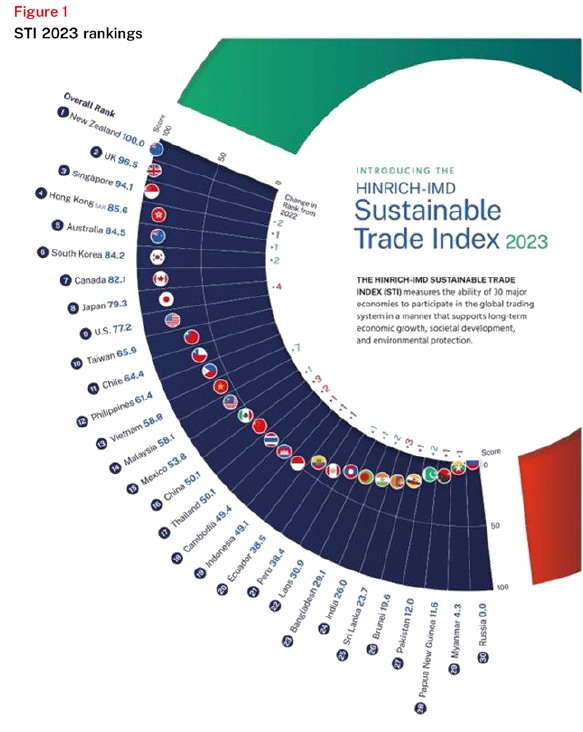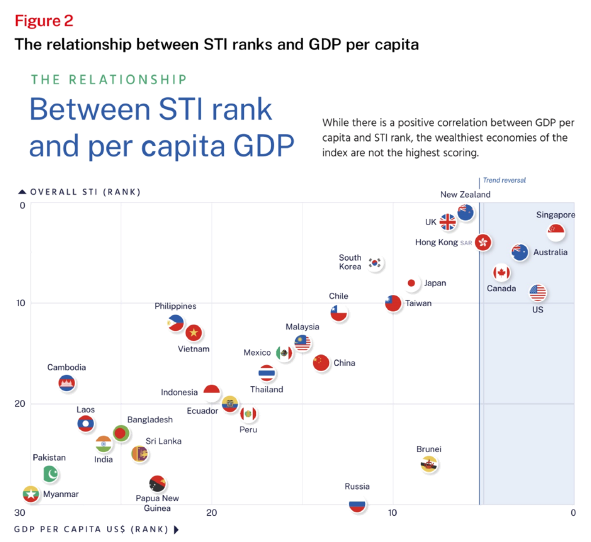
The 2023 edition of the annual Hinrich-IMD Sustainable Trade Index (STI) is outlined by a key shift in a post-pandemic world marred by geopolitical turmoil: towards the so-called “slowbalization”.
Economists generally mean by this term a slowdown in trade reform and weakening political and policy support for measures that open trade amid rising geopolitical tensions.
As a response to an increasingly fragmented world, evidence from the STI shows a deterioration across key economies in non-tariff barriers and trade costs this year compared to 2022.
The world’s largest economies, which should be leading efforts to reverse “slowbalization”, are instead among the key countries that are raising tariffs, non-tariff barriers, and slowing trade liberalization, the data shows.
This has posed challenges to how states can properly use trade to manage and promote their economic, societal, and environmental sustainability.
Of the 30 major trading economies studied by the STI 2023, the two that excelled in achieving such a balance were, for the second year in a row, New Zealand, and the United Kingdom. Singapore jumped from 5th to 3rd place, and Japan dropped four positions, from 4th to 8th place (Figure 1).

“Economies that balance trade and sustainability well tend to be the more developed ones (Figure 2), in which the cost of making trade more aligned to the Sustainable Development Goals is lower,” says Professor Arturo Bris, Director of IMD’s World Competitiveness Center, which produces the STI in partnership with the Hinrich Foundation.

“With global trade challenged by geopolitical and health issues, the work of streamlining supply chains and reducing costs has become paramount, even at the expense of social or environmental considerations in global trade. Our index sheds light on how this trade-off is being played out,” explains Bris.
“The global trade system is experiencing fragmentation that threatens to erode the achievements of 70 years of globalization,” says Kathryn Dioth, CEO of the Hinrich Foundation. “Protectionist trade policies are being implemented under the guise of responding to the headwinds of post-pandemic inflation and geopolitical tensions. And while global trade continues to expand in value, that is mainly due to higher commodity prices.”
The STI measures 30 economies’ readiness and capacity to participate in the global trading system by analyzing 71 indicators grouped into three “pillars” that align with the long-term goals of economic growth, societal development, and environmental protection.
High-ranking economies share discernible commonalities: under the economic pillar, those with robust infrastructure and a strong inclination towards technological innovation stand out. In the societal pillar, the index rewards economies characterized by political stability, economic equality, high educational attainment, and social mobility.
In the environmental pillar, the top ranks are occupied by economies that uphold high environmental standards and effectively address challenges related to wastewater, air pollution, carbon, and energy intensity.





